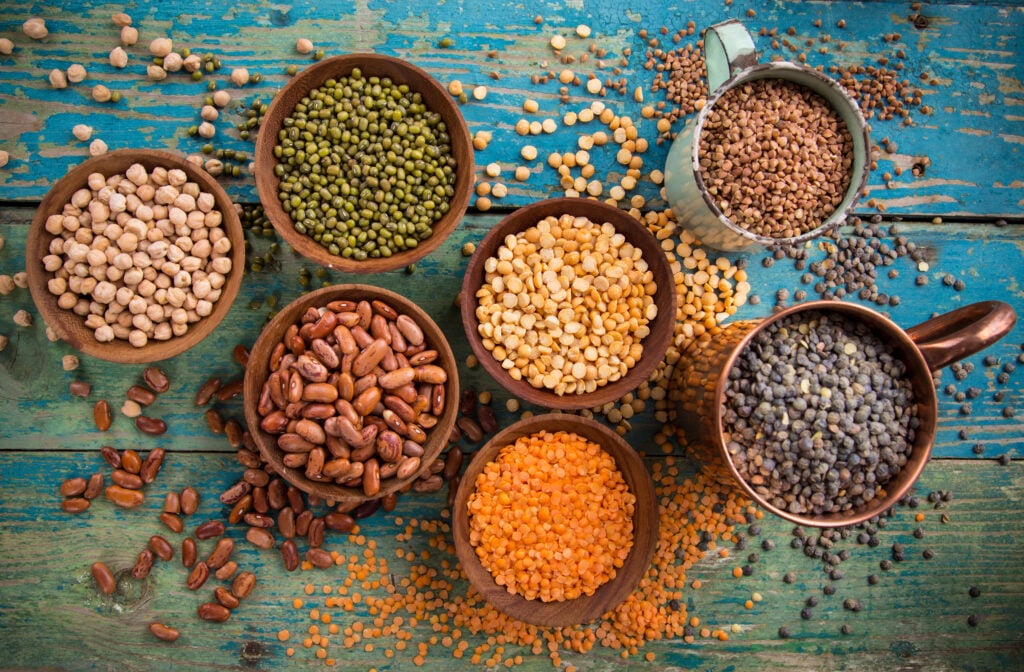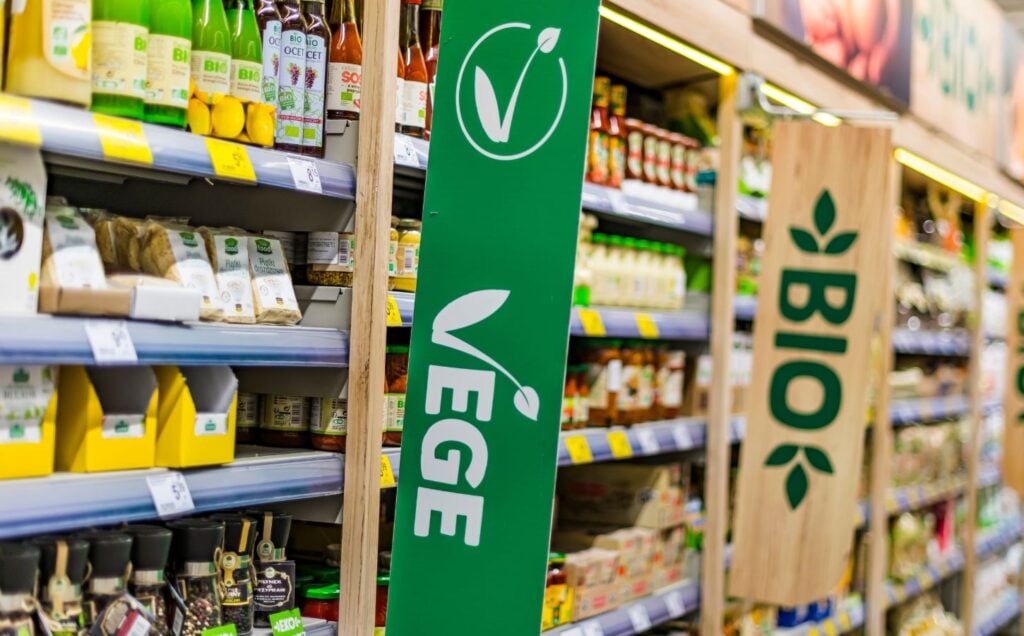More than half of European meat-eaters say they are reducing their meat consumption, according to a survey.
Plant-based advocacy group ProVeg, Ghent University, and the University of Copenhagen conducted the survey of 7,500 people in 10 countries. Fifty-one percent of those surveyed said they are actively trying to eat less meat, compared to 46 percent of people in 2021.
Animal welfare is the cited as the reason for 29 percent of people. Twenty-six percent are most concerned by meat’s environmental impact, with Denmark and the Netherlands leading on green motives. But health is the main motivation for eating less meat, with 47 percent of respondents saying it was their top reason.
“Increasing numbers of people are choosing to reduce their meat intake,” Jasmijn de Boo, CEO of ProVeg International, said in a statement. “[P]olicy makers and industry can use this knowledge to make respective decisions on the production and promotion of plant-based foods.”
Concern for animals
Respondents who described themselves as flexitarian – people who eat more plant-forward diets without excluding animal products – are more likely to be motivated by animals welfare than omnivores. Forty percent of flexitarians are worried about the treatment of animals compared to 22 percent of omnivores.
There is a slight difference in levels of concern for animals between generations. Thirty-six percent of boomers (aged between 60 and 80) cited animal welfare as a top concern. Just below 30 percent of Gen X (45 to 60 year-olds), millennials (30 to 45 year-olds), and Gen Z (15 to 30 year-olds) are most motivated by animals well-being.
People in Germany and the Netherlands are the most motivated by animal welfare to eat less meat, while people in Romania are the least motivated.
More legumes

The survey found that 66 percent of Europeans say they eat legumes occasionally, while over half say they want to up their intake. For those motivated by health and environmental concerns to eat less meat, legumes are indeed the solution.
Legumes such as soy beans and chickpeas are regarded as a great source of plant-based protein, as well as being packed with vitamins, minerals, and fiber. They are naturally low in fat, with almost no saturated fat, and free of cholesterol. A diet rich in legumes can lower the risk of developing type 2 diabetes, can lower blood pressure, and help with weight control.
Growing more legumes in Europe to replace animal-based protein also brings significant environmental benefits. It requires much less land to grow legumes than farm animals, providing a huge opportunity for rewilding agricultural land and cutting greenhouse gas emissions while providing a healthy source of protein. They fix nitrogen in the soil, reducing the need for synthetic or animal-based fertilizers.
Currently, legumes are under-produced and under-consumed in Europe. Only two percent of agricultural land in Europe is used to grow legumes. An association with poverty has also meant legumes have long been ignored by consumers and growers. Experts say that better policies are needed in Europe to support legume production and help consumers replace meat in their diets with beans and lentils.
Cultivating trust
Another key finding of the ProVeg survey is that 46 percent of Europeans say they have more trust in plant-based meat alternatives than they did two years ago.
Emanuele Zannini, co-ordinator of Smart Protein, an EU plant-based protein research project which funded the ProVeg survey, said in a statement that transparency is key to winning people over. Consumers should have access to clear information about how the products are made and where their ingredients are from.
“This will encourage more and more consumers – including the more sceptical ones – to embrace, with more confidence, a shift towards a better diet for their health and for the planet. This is a clear target for food scientists and food ingredient industries,” Zannini said.






